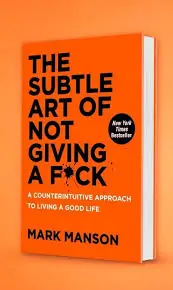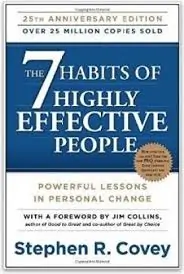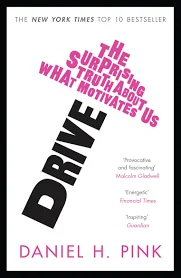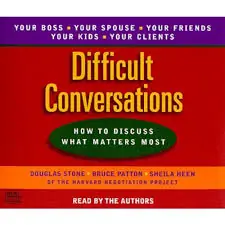Books for Corporate Trainers
Corporate trainers are in charge of creating and executing educational initiatives that advance the abilities and expertise of workers inside an organization. An in-depth knowledge of instructional design, adult learning principles, and efficient training methods are necessary for this position. To improve their knowledge and abilities in this area, here is a comprehensive list of books for corporate trainers.

The Art of War by Sun Tzu
Introduction

An ancient Chinese military tactician named Sun Tzu wrote the timeless classic The Art of War. It is a work that has withstood the test of time and is still extensively read and used in contemporary conflict, business, and daily life. The book is a compilation of military tactics and methods that may be utilized to defeat any foe, and its lessons are still helpful and applicable today. This is why this book is on number 1 of our comprehensive list of Books for corporate trainers.
Learning Points from the book
There are thirteen chapters in The Art of War, each of which focuses on a distinct facet of combat. The book places a strong emphasis on how to defeat an opponent through planning, strategy, and tactics. Understanding both yourself and your enemy is crucial, according to Sun Tzu. “If you know the enemy and know yourself, you need not fear the outcome of a hundred battles,” the speaker asserts. He also stresses the value of adaptability and being able to change course when necessary.
The book teaches us to go beyond the apparent and employ surprise and deceit to outwit our adversaries. All warfare, according to Sun Tzu, is predicated on deception. As a result, whenever we have the ability to attack, we must appear incapable; if we use our forces, we must appear inactive; whenever we are close to the adversary, we must make him believe that we are far away; and vice versa.
Why should a corporate trainer read The Art of War by Sun Tzu?
The Art of War is not just a book on warfare; it has valuable lessons that can be applied in business and everyday life. Corporate trainers can use the book to teach their employees about the importance of preparation, strategy, and adaptability in business. The book teaches us to be proactive, to anticipate problems and to have contingency plans in place. Sun Tzu also emphasizes the importance of leadership and how a good leader can motivate their team and lead them to victory. This is the reason, this book is in number 1 of our comprehensive list of Books for corporate trainers.
Read the books for corporate trainers: The Art of War by Sun Tzu online for free:
The Subtle Art of Not Giving A F*Ck By Mark Manson
Introduction

Self-help book “The Subtle Art of Not Giving a F*ck” by Mark Manson asks readers to reconsider how they live. By urging readers to accept their defects and limitations rather than attempting to repair everything, the book adopts a novel approach to self-improvement. It’s a fun book to read because of Manson’s humorous and engaging writing. It is number two in our comprehensive list of books for corporate trainers.
Learning Points from the book
The key takeaway from the book is that we should give up striving to always be happy and recognize that life is full of difficulties and challenges. According to Manson, accepting pain and learning from it are more important than trying to avoid it. He emphasizes how crucial it is to take charge of our life and make decisions that are consistent with our priorities and core values.
The book’s main lesson is that we should concentrate on the things that are actually important to us and let go of the ones that don’t. This requires realizing that we can’t control everything in life and learning to say “no” to requests that don’t fit with our priorities.
Why should a corporate trainer read The Subtle Art of Not Giving A F*Ck By Mark Manson?
Corporate trainers can benefit from reading “The Subtle Art of Not Giving a F*ck” since it exhorts readers to take charge of their life and make deliberate decisions. This is a key competency for staff members in any organization since it enables them to prioritize their work and maintain attention on what is most important. The book also stresses the value of resilience and adaptation in the face of difficulties, which are essential traits for success in any workplace. This is the reason, this book is in number 2 of our comprehensive list of Books for corporate trainers.
The book “The Subtle Art of Not Giving a F*ck” provokes readers to reevaluate their philosophy of life as a whole. For corporate trainers looking to help staff members prioritize their work and build the resilience necessary to succeed in any setting, it provides insightful advice.
Read the books for corporate trainers: The Subtle Art of Not Giving A F*Ck By Mark Manson:
The 7 Habits of Highly Effective People by Stephen Covey
Introduction

Stephen Covey’s 1989 self-help book, “The 7 Habits of Highly Effective People,” is a classic. With 50 different language translations, the book has sold over 30 million copies worldwide. Corporate trainers and company executives frequently suggest it because it is regarded as a classic in the field of personal development. Seven habits that, when followed, can result in success on both a personal and professional level are presented in the book. This is the reason this book is listed in the 3rd place of our comprehensive list of books for corporate trainers.
Learning Points from the book
Personal victory, public victory, and rejuvenation make up the book’s three sections. Covey starts out by defining paradigm changes, which are the basic shifts in our worldview. The first three habits are geared at obtaining personal success through the growth of a solid character and self-discipline. Be proactive, start with the goal in mind, and put first things first are some examples of these practices. Covey emphasizes the need for each of us to be accountable for our own actions and pursue our own objectives. This is the reason this book is listed in the 3rd place of our comprehensive list of books for corporate trainers.
The next three habits are focused on achieving public victory by building effective relationships with others. These habits are: think win-win, seek first to understand, then to be understood, and synergize. Covey emphasizes that we must build trust, respect, and understanding in our relationships to achieve mutual success.
The final habit is focused on personal renewal, and Covey describes the need to regularly renew ourselves in all four areas of our lives: physical, spiritual, mental, and social/emotional. He argues that we cannot achieve long-term success without regularly taking care of ourselves.
Why it is important for corporate trainers?
For corporate trainers who wish to improve their own and others’ leadership abilities, “The 7 Habits of Highly Effective People” is a must-read. The book offers a thorough foundation for both professional and personal growth, and the habits Covey outlines can be used in all facets of life. The significance of being proactive in both life and work, having clear goals, and cultivating good interpersonal relationships are all emphasized throughout the book. These are essential capabilities for successful leadership in any organization. This is the reason this book is listed in the 3rd place of our comprehensive list of books for corporate trainers.
The principles and ideas presented by Covey in this book can also be used to create training courses for staff members with an emphasis on improving both personal and professional effectiveness. The seven habits can be used to improve goal-setting, communication, time management, and teamwork, among other training-related skills. Work-life balance and employee wellbeing can be supported by Covey’s emphasis on personal rejuvenation. This is the reason this book is listed in the 3rd place of our comprehensive list of books for corporate trainers.
Read the books for corporate trainers: The 7 Habits of Highly Effective People by Stephen Covey
Drive: The Surprising Truth About What Motivates Us by Daniel H. Pink
Introduction

Drive: The Surprising Truth About What Motivates Us, by Daniel H. Pink, is a must-read for anyone who wants to understand the science of motivation. Pink challenges conventional thinking about what motivates us and provides a compelling argument for how we can create workplaces and environments that foster intrinsic motivation.
The book draws on research from psychology, economics, and neuroscience to explain why traditional carrot-and-stick approaches to motivation may not be effective, and how we can tap into the innate drive that exists within all of us. his is the reason this book is listed in the 4th place of our comprehensive list of books for corporate trainers. This is the reason this book is listed in the 4th place of our comprehensive list of books for corporate trainers.
Learning Points from the book
The idea that people are not simply motivated by material incentives and penalties, such as money or threats of punishment, is one of the book’s main points. Instead, autonomy, mastery, and purpose are the three main motivating forces in our lives. According to Pink, people are more likely to be motivated and engaged when they have the flexibility to select their own route, the chance to gain mastery over their job, and a feeling of purpose in what they do.
The importance of intrinsic motivation, which derives from inside and is motivated by our own internal goals and interests rather than external rewards, is also emphasised throughout the book. According to Pink, organisations that focus on cultivating intrinsic motivation are more likely to succeed in today’s fast-paced, complicated environment. Intrinsic motivation is essential for creativity, problem-solving, and innovation. This is the reason this book is listed in the 4th place of our comprehensive list of books for corporate trainers.
Why it is important for corporate trainers?
The insights offered in Drive can be very helpful to corporate trainers. Trainers may establish projects and programmes that tap into their employees’ inherent drive and foster a climate where they are more likely to be engaged and productive by knowing the science of motivation. Trainers can create performance management systems that are based on autonomy, mastery, and purpose rather than on conventional incentives and punishments by using the principles stated in the book.
The book can also be used by trainers to teach staff members how to recognize their own motivations and how to leverage that drive to accomplish their objectives. Increased job happiness, productivity, and innovation may result from this. Corporate trainers can build a culture of motivation and engagement that will be advantageous to the entire organization by incorporating the Drive concepts into their training programs. This is the reason this book is listed in the 4th place of our comprehensive list of books for corporate trainers.
Difficult Conversations: How to Discuss What Matters Most by Douglas Stone, Bruce Patton, and Sheila Heen
Introduction

The book Difficult Conversations: How to Discuss What Matters Most by Douglas Stone, Bruce Patton, and Sheila Heen offers advice on how to handle awkward or difficult conversations. It teaches readers to approach these discussions with curiosity and empathy while concentrating on the underlying needs and interests of all participants. Anyone who wishes to develop their communication abilities, especially in a professional situation, should read this book. This is the reason this book is on the 5th Position in our comprehensive list of books for corporate trainers.
Learning Points from the book
It’s crucial to approach challenging conversations with a collaborative perspective, which is one of the key lessons to be learned from this book. The writers advise readers to approach the discussion as an issue to solve jointly rather than seeing it as a conflict or a contest. They offer methods for rephrasing the dialogue in a way that respects everyone’s needs and interests and fosters understanding and cooperation.
The value of paying attention actively and empathically is another crucial lesson from the book. We may get a deeper knowledge of the wants and motives of the other person by really hearing what they have to say, which will help us come up with solutions that benefit both of them. The authors offer helpful suggestions for engaging in active listening, including paraphrasing and clarifying inquiries. This is the reason this book is on the 5th Position in our comprehensive list of books for corporate trainers.
Why it is important for corporate trainers?
Effective communication is a crucial skill for corporate trainers, and Difficult Conversations provides valuable insights and strategies for navigating challenging conversations. Whether it’s dealing with conflict between team members, addressing performance issues, or negotiating a difficult contract, the book offers practical tools to help trainers approach these conversations with confidence and empathy.
Trainers can help team members develop better bonds and more trust by implementing the methods described in the book to provide a secure and encouraging atmosphere for employees to talk about challenging topics. The book also stresses the significance of accepting accountability for our own feelings and behaviors and provides techniques for controlling our own triggers and biases in order to promote more fruitful talks. This is the reason this book is on the 5th Position in our comprehensive list of books for corporate trainers.
Continually honing your abilities and keeping up of the most recent business developments are prerequisites for becoming a successful corporate trainer. Here are some additional books for corporate trainers that might be of great help as well.
- Troubleshooting for Trainers by Sophie Oberstein: This book is an excellent resource for trainers looking to improve their problem-solving skills. Sophie Oberstein provides practical solutions to common training challenges, making it a valuable addition to any trainer’s toolkit.
- Telling Ain’t Training by Harold Stolovitch: In this book, Harold Stolovitch emphasizes the importance of creating engaging and effective training programs. He provides strategies for making training more interactive and memorable, helping trainers to achieve better results.
- Virtual Training Basics by Cindy Huggett: As more and more training moves online, it’s important for trainers to develop virtual training skills. Cindy Huggett’s book is a great starting point, providing practical tips and best practices for delivering effective virtual training.
- Jonathan Halls’ book Confessions of a Corporate Trainer: This book offers an inside peek at what it’s like to work as a corporate trainer. Anyone wishing to pursue a lucrative career in this industry will find it to be a useful read as Jonathan Halls offers his experiences and ideas.
- Slideology: Nancy Duarte’s The Art and Science of Making Great Presentations. Making presentations that are interesting and useful is essential for trainers. The book by Nancy Duarte is essential reading for anyone hoping to sharpen their presentation abilities. She offers helpful advice and real-world examples to assist trainers in developing compelling and informative presentations.
While there are many great books on corporate training, these five are a great starting point for anyone looking to improve their skills and build their career in this field.


